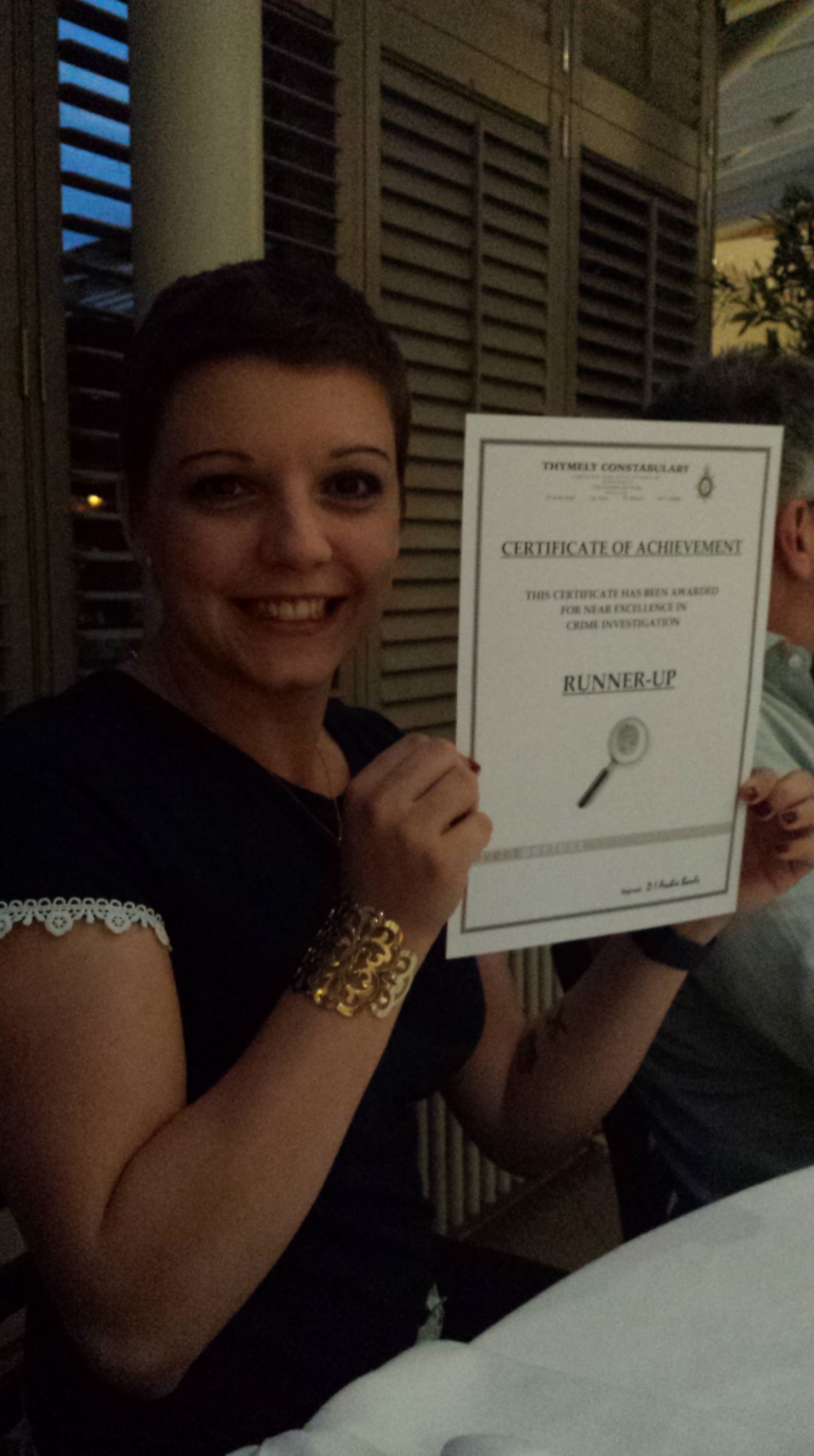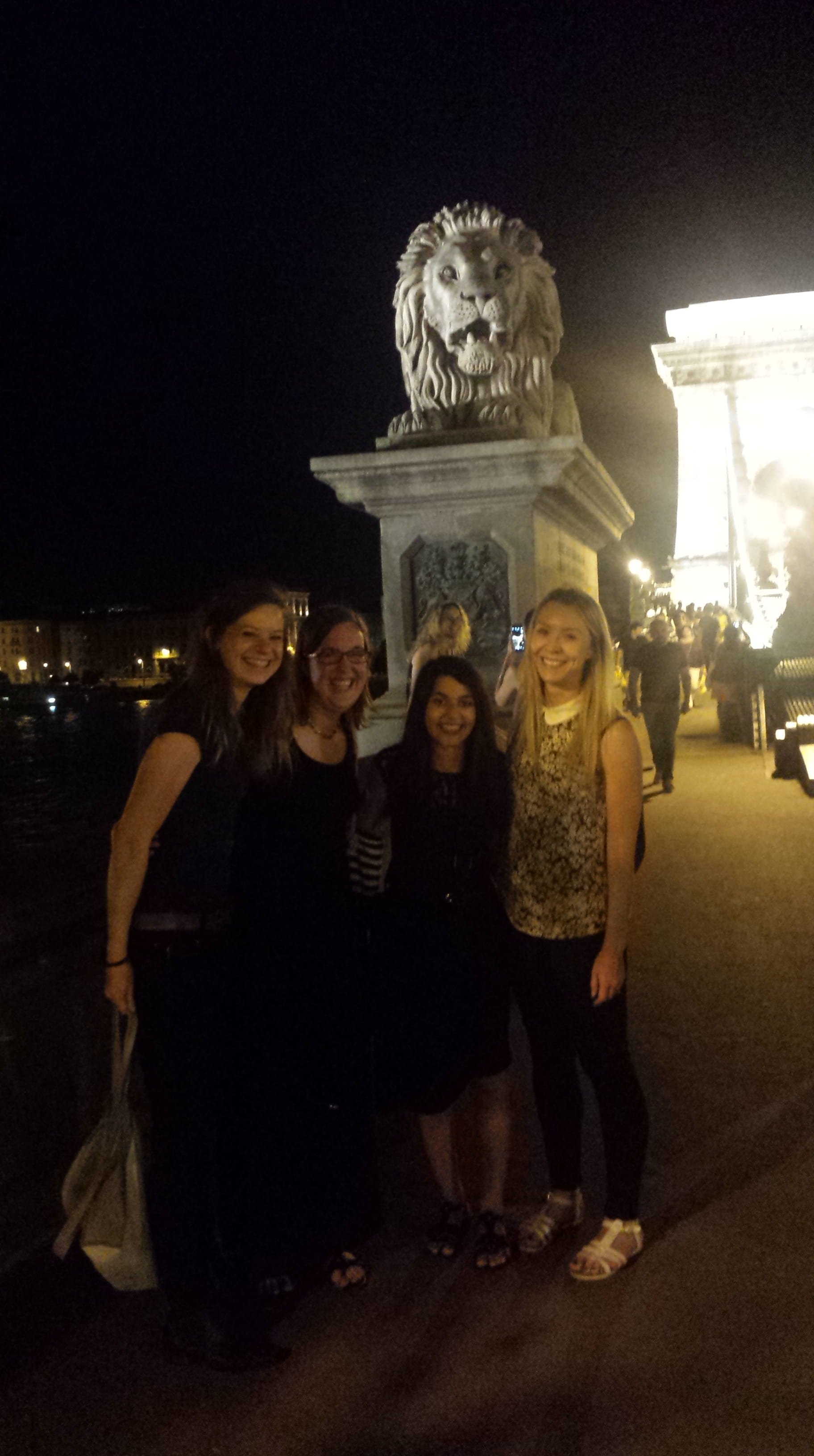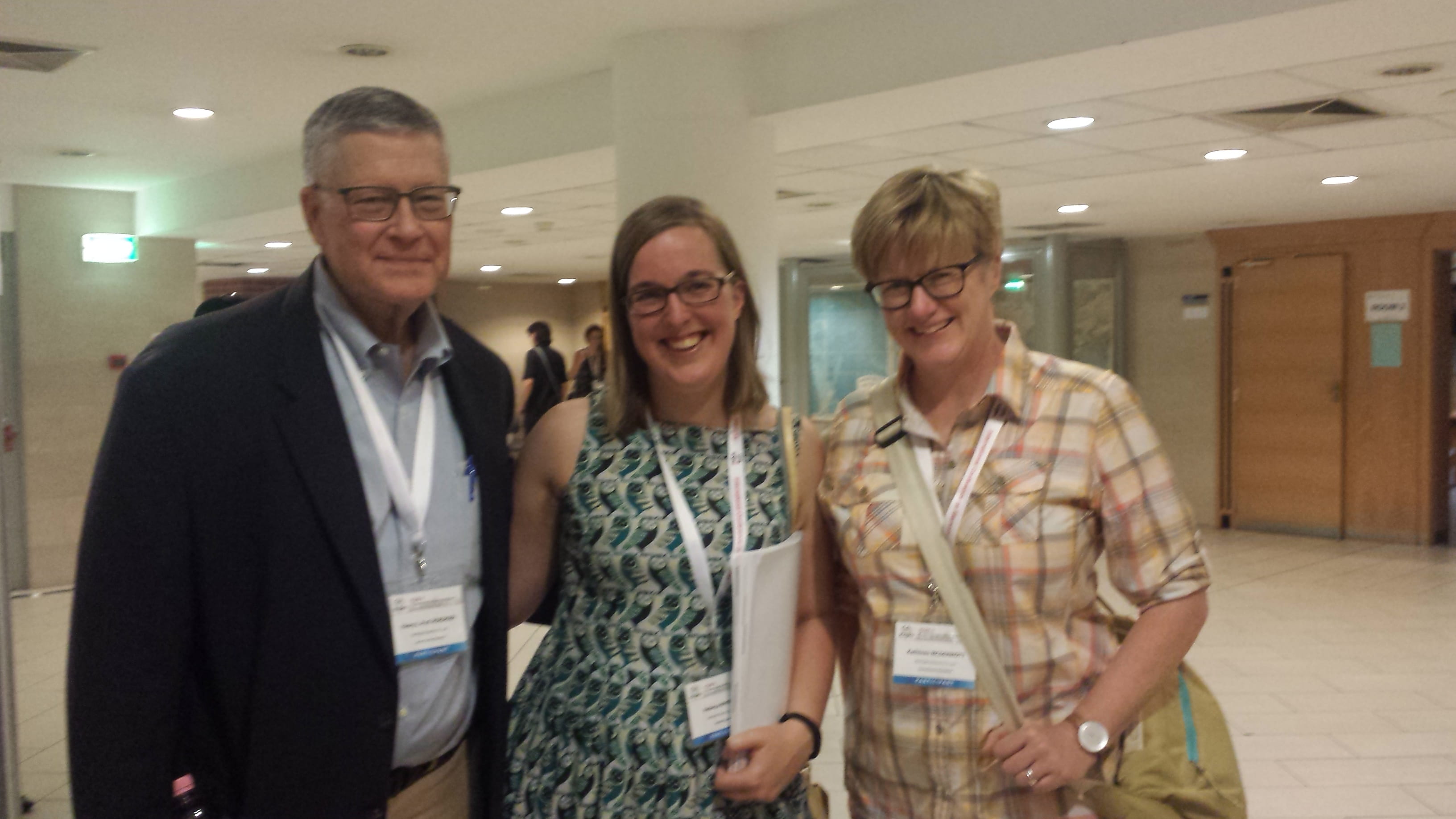 Rebecca Wheeler is a PhD student in the Forensic Psychology Unit supervised by Fiona Gabbert and Sian Jones. Her work focuses on adding a new Self-Generated Cue mnemonic to the Cognitive Interview to maximize witness recall.
Rebecca Wheeler is a PhD student in the Forensic Psychology Unit supervised by Fiona Gabbert and Sian Jones. Her work focuses on adding a new Self-Generated Cue mnemonic to the Cognitive Interview to maximize witness recall.
Rebecca has also begun working alongside Trident (of the Metropolitan Police) and Xcalibre (of Greater Manchester Police) on establishing psychological techniques to encourage reluctant witnesses to engage with the criminal justice system. Here, she discusses her experience as a postgraduate conference attendee…
Conference season is just about over for a year and here at the Forensic Psychology Unit (FPU) it’s been a busy time. Anyone following this blog series will no doubt have enjoyed Ashok Jansari’s post about the challenges of completing an ‘academic marathon’. Here, I wanted to focus on the toned-down (but no less exhausting!) experience postgraduates often face at conferences.
I’ve attended conferences before, both national and international, as part of my Masters and PhD research experience. This summer was the year that I had my most varied conference experiences to date. The first stop for the FPU gang was the annual International Investigative Interviewing Research Group conference. This a quite focused academic-practitioner conference with a great mix of professional interviewers, academics, and policy makers. We also attended the five-yearly (which Google tells me is quinquennial) International Conference on Memory in Budapest. I presented some of my PhD work on self-generated cues as a retrieval aid (coming soon to journal near you!) at both of these conferences, but the experience was quite different in each case.
This year’s IIIRG was hosted at the beautiful Latimer Place in London (Zone 8, which we weren’t even sure existed!). A small army of FPU staff, PhD students, and Research Assistants attended (it’s great fun and a fantastic source of support when you can attend in a ‘research gang’), and the majority of the attendees were staying at the conference venue, so it had a very residential feel to it. This does mean that it gets even more important to grab down-time when you have a chance! Conferences can be exhausting!
The academic-practitioner nature of the conference was also completely new to me. It made it quite difficult to know how to pitch my talk. This is where supervisor support, and lab group support if you have it, becomes invaluable. Each one of us presenting (and there were a few FPU presenters, including fellow PhD-er Ale Caso for her first ever conference talk – she did amazingly!) had the chance to sit down together and do a few run-throughs and prepare for questions. This meant we could walk into our talks feeling a little more prepared, and having had Fiona’s advice on balancing academic and practitioner expertise. This can be a really daunting side of applied research – for example, how do you talk about improving investigative interviewing to people who interview at a high level for living? For what it’s worth, it’s probably not something to stress about! In my experience the practitioners who attend conferences like this are particularly open to hearing about the contribution academics can make to easing their workload and maximizing their effectiveness. Above all, as an applied researcher I’d say it’s definitely worth approaching the people working in the field you’re trying to have impact in – they bring a unique perspective and can make some really valuable contributions to shaping your research questions.
We had a great time at IIIRG. We had some great chats and heard some amazingly varied talks that sparked some fantastic research ideas (watch this space!). I’m also pleased to note that the FPU PhD students did ourselves proud at the Murder Mystery Social – we were part of the team in second place for solving the ‘whodunnit’. Looks like our experience with Jane Doe paid off…(you can read blogs about our Jane Doe experience here and here).

ICOM for me was a very different experience. For starters, it comes around every five years and it was absolutely HUGE! A week-long conference, with two keynotes a day and eight parallel streams of talks. Safe to say it was absolutely exhausting! ICOM this year was held in Budapest, a city I’d never visited before, but would highly recommend. So last month I packed my bags, waved goodbye to the FPU and headed to the airport. IIIRG was the first time I’d been to a conference in a lab group, and I had attended conferences before (usually solo or just with one or two other people), so I didn’t really realize how much I would miss my gang at ICOM! Conferences can be lonely places when you’re flying solo! Fortunately, I had my super-supervisor Fiona, former boss Rob Nash, and a handful of people I’d met at other conferences around to keep me company. Conferences are also a great time to get to know others working in the field. At my first big international conference Fiona told me to befriend the other PhD students, as they’ll likely become my future colleagues. This feels like pretty sound advice.

It’s also worth remembering that people at conferences are usually pretty nice, and almost certainly interested in similar things to you. Watching talks and visiting the poster sessions can be an opportunity to arm yourself with some conversation starters if you’re struggling. It’s also worth approaching the bigger names – say hello, ask how they are enjoying the conference, ask about their current work…or do some acutely embarrassing fan-girling (see below with Roediger and McDermott – the R and M in the DRM paradigm!)

Well I’m running out of words and I haven’t said half of what I want to say – this won’t be a surprise to anyone who knows me. All in all, conferences can be exhausting and slightly scary places at times, but it’s worth putting yourself out there and chatting with anyone you can. You never know when you’ll strike up a conversation that leads to a great idea, a grant application, a job opportunity, or when you’ll meet the person who will become a close collaborator. Get advice from everyone you can before you go, ask people for introductions while you’re there (a couple of the PhD students I met at ICOM introduced me to people they knew and vice versa – it’s a relatively easy way to grow your network!), and above all enjoy every minute. It’s difficult not to feel incredibly lucky when your work takes you to beautiful places to chat to amazing people…and on that note I’ll leave you with a photo’ of beautiful Budapest. I know the academic life is for me.

Rebecca tweets at @R_L_Wheeler and as part of the FPU team on @ForensicGold.